2. Find out what vitamins are and get the following information.
(i) Why are vitamins necessary in the diet?
(ii) Which fruits or vegetables should be eaten regularly to get vitamins?
Write a one-page note on the information collected by you. You may take help of a doctor, a dietician, your teacher or any other person, or from any other source.
Answer:
Vitamins are substances which the human body needs in small quantities to function and carry out normal activities. They are essential for growth and development of the body. The body is not capable of producing enough of these substances and therefore they have to be externally supplemented to meet the optimum requirements. Vitamins are commonly taken orally through certain types of foods and also in the form of tablets and capsules.
Vitamins are mainly of two types: fat-soluble and water-soluble vitamins. Fat soluble vitamins are soluble in fat and consist of vitamins A, D, E, K. Water soluble vitamins dissolve in water and consist of vitamins C and B-complex.
(i) All the essential vitamins are necessary in the diet because:
(a) Vitamin A is essential for maintaining good vision. Deficiency of vitamin A can lead to night blindness and other vision problems. It also helps improve the immune system to fight against diseases and keeps skin, teeth, hair and bones healthy. It is also a useful antioxidant and thus protects the cells from damage.
(b) Vitamin D is essential for absorption of calcium by the body and thus contributes to the development of healthy bones and teeth. Deficiency of vitamin D can lead to osteoporosis, a disease which makes bones weak and brittle.
(c) Vitamin E improves vision, skin, wound healing and acts as an antioxidant.
(d) Vitamin K primarily helps in blood clotting by producing proteins which help in the coagulation process. Vitamin K deficiency can impair blood clotting and lead to excessive bleeding. It also contributes to building and maintenance of strong, healthy bones.
(e) Vitamin C helps in building and maintaining tissues, skin, blood vessels, bones etc and is an antioxidant. Deficiency of Vitamin C can lead to diseases like scurvy.
(f) Vitamin B-complex work together to help the body function properly by releasing energy through metabolism of carbohydrates, proteins, fats etc. B-complex vitamin deficiency causes diseases like anaemia and beriberi, nerve damage and developmental problems in infants.
(ii) Which fruits or vegetables should be eaten regularly to get vitamins?
(a) Vitamin A-rich fruits include mangoes, cantaloupe, apricot, grapefruit, watermelon, papaya, guava etc. Vitamin A-rich vegetables include carrots, sweet potatoes, leafy vegetables such as kale, spinach, broccoli etc.
Some of these fruits and vegetables are shown below:
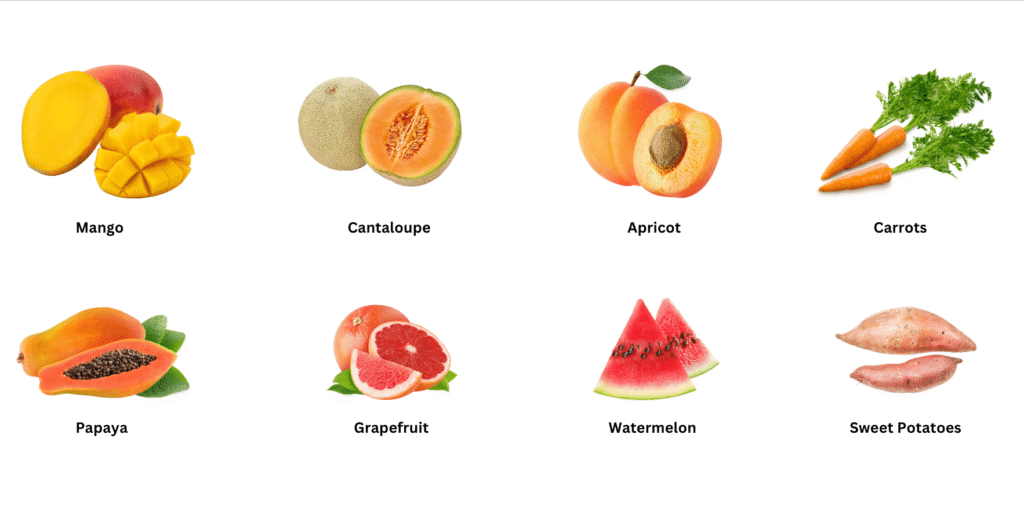
(b) Fruits rich in Vitamin D are avocado, kiwi, orange, banana, grapefruit, apricot, watermelon, cantaloupe etc. Vegetables rich in Vitamin D are soyabeans, spinach, kale, okra, collards, white beans. Some of these fruits and vegetables are shown below:
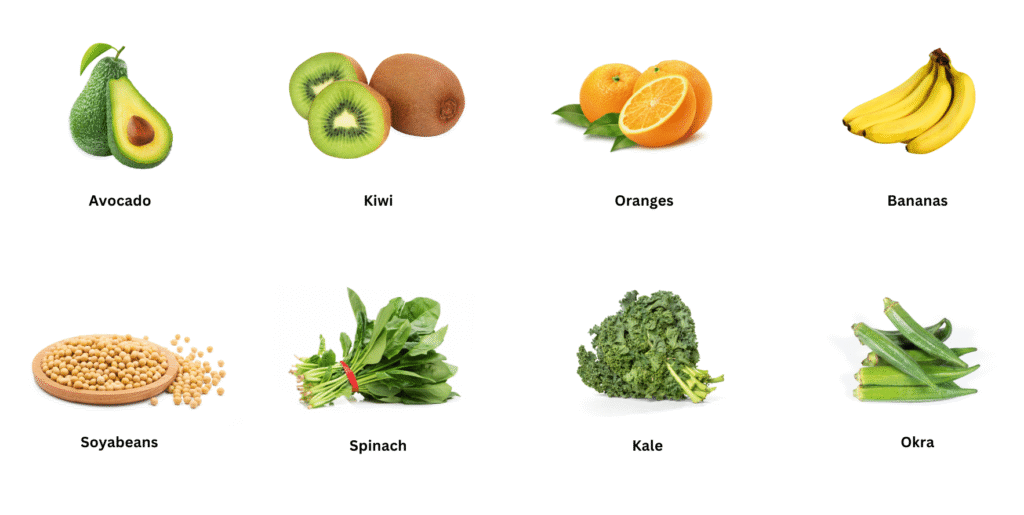
(c) Vitamin E-rich fruits include avocado, kiwi, mango, papaya, almond, hazelnuts, blackberry, apricot etc. Vegetables rich in Vitamin E are spinach, kale, okra, broccoli, bell pepper, asparagus, tomatoes, turnip green etc. Some of these fruits and vegetables are shown below:
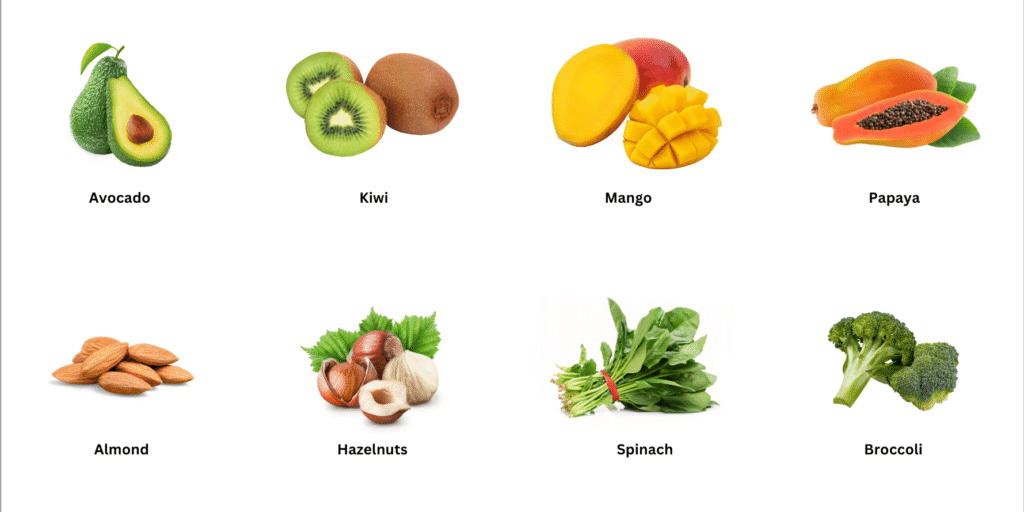
(d) Vitamin K-rich fruits include avocado, kiwi, blueberries, strawberries, cantaloupe, mango, grapes etc. Vegetables rich in Vitamin K include brussels sprouts, cabbage, asparagus, spinach, kale, broccoli, lettuce etc. Some of these fruits and vegetables are shown below:
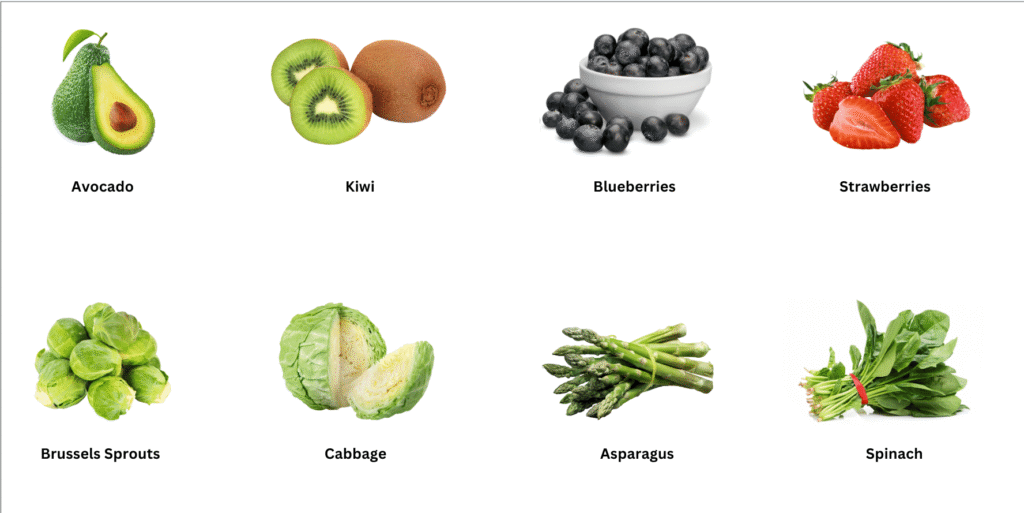
(e) There are many fruits rich in Vitamin C such as citrus fruits like kiwi, oranges, lemon etc and also fruits like guava, strawberries, papaya, mango, pineapple, etc. Vegetables rich in Vitamin C include bell peppers, broccoli, snow peas, tomato, brussels sprouts, cauliflower, tomatoes, spinach etc. Some of these fruits and vegetables are shown below:
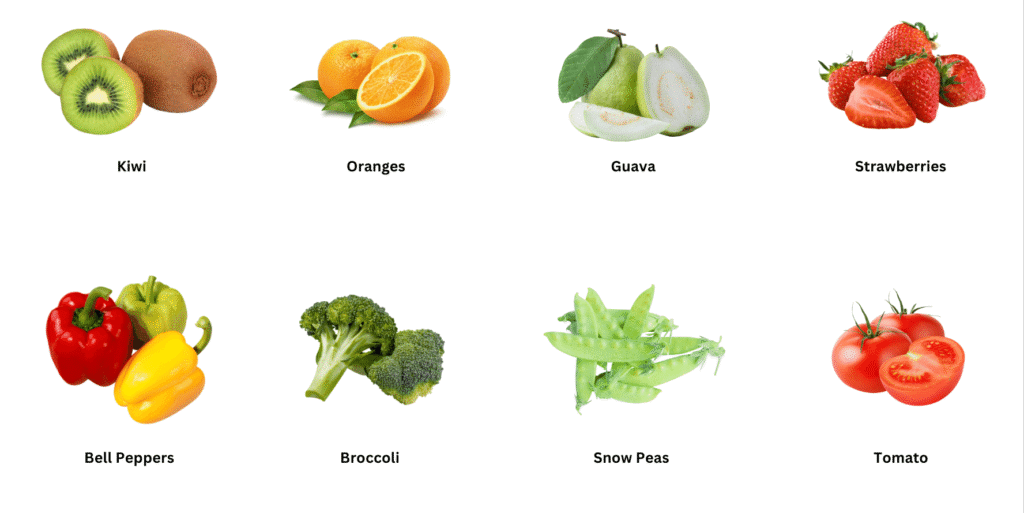
(f) Vitamin B-complex rich fruits include citrus fruits (contains most B-complex vitamins), avocado (5 B-complex vitamins), bananas, grapes etc. Vitamin B-complex rich vegetables are spinach (6 B-complex vitamins), asparagus, turnip greens, kale etc.
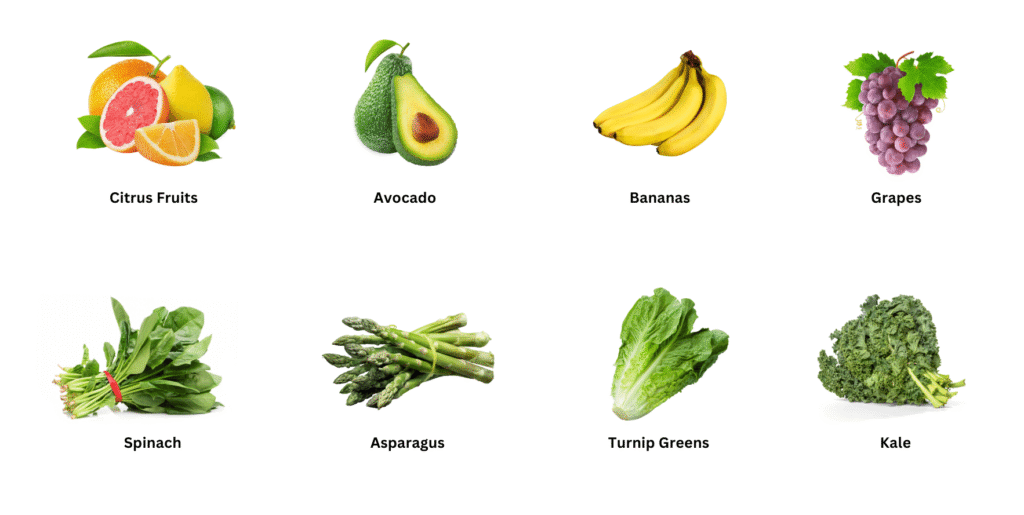
“2. Find out what vitamins are and get the following information.
(i) Why are vitamins necessary in the diet?
(ii) Which fruits or vegetables should be eaten regularly to get vitamins?
Write a one-page note on the information collected by you. You may take help of a doctor, a dietician, your teacher or any other person, or from any other source.” – Solved.
Solution to Extended Learning Problem 1
Solution to Extended Learning Problem 3
Solution to Activity 2.1
Solution to Activity 2.2
Solution to Activity 2.3
Solution to Activity 2.4
Solutions to Chapter 2 Nutrition in Animals


